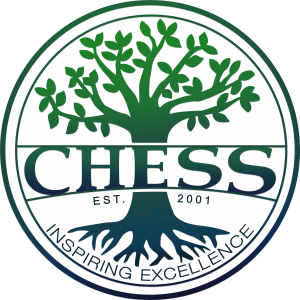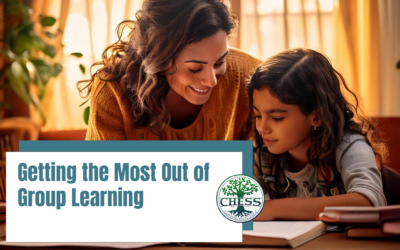TEACHER SPOTLIGHT: Dijana Trkulja
Read our interview with Dijana Trkulja below!
Dijana was born in former Yugoslavia and studied Social Studies at the Banja Luka School for Natural Science and Mathematics (http://www.unibl.org/en/members/faculties/faculty-of-natural-sciences-and-mathematics). Due to her husband’s work, her family has moved four times over 15 years, to include living abroad. Dijana has been active in different churches domestically and internationally, leading women’s ministries and children’s programs in military communities.She worked as a financial advisor and a background investigator prior to homeschooling her daughters, and has served the homeschool community since 2012 as a teacher and a co-op board leader. Dijana holds an Associates Degree in Computer Programming from Cuyahoga Community College, speaks multiple languages and has extensive international travel to over a dozen countries. She has always had a love for teaching, especially history and geography. Over the last six years Dijana has taught high school US History, World History and Geography, and Art at different homeschool co-ops. Currently she is teaching Government and Economics, and World History with Literature and Bible at CHESS. She thanks her Lord and Savior Jesus Christ for the opportunity to lead and teach children in His way. Dijana looks forward to serving at CHESS this coming year.
What do you enjoy about teaching?
I always loved working with kids, I volunteered at church and different youth programs, and at events like vacation bible school with kids of all ages. When my kids were little, at one point my husband said “I think we should homeschool.” I said “me?!” I didn’t understand, coming from Europe this is a big “no.” In some countries it is even illegal. I thought “what are you talking about?”
However, I got to know a few people that homeschooled, and at the end I saw the difference it made when you give a child one-on-one attention, give them time to explore what they are strong at and what they love to do, and meet them where they need help along the way. I saw this with my children, and when they got to 1st or 2nd grade, I started helping out in co-ops and teaching other kids as well—I loved seeing kids flourish.
What do you like about homeschooling?
Everyone learns differently and has different interests and differences in how they want to express themselves; and I think only homeschooling can give this to a child. Schools are great to teach different subjects, but I think it’s hard to nurture that in a group where everyone has to meet the same deadline and follow the same protocol and system.
As a Christian I felt homeschooling was the only way to instill Biblical values through subjects as well as have the opportunity to teach Bible. I love homeschooling now. There were times (as with everything else in life) that you think “why am I doing this,” but there is reward at the end of the day, at the end of the week, I see it in my children and other children. I love teaching.
Everyone learns differently and has different interests and differences in how they want to express themselves; and I think only homeschooling can give this to a child.
What is important for students to gain in their education?
Information is everywhere. Students learn the history of America in 6th grade and again in 9th or 10th grade, and so on. What’s important is [not the information, but] the relationship and the experience that they get. I like that [at CHESS and as homeschoolers] we can come and openly look at subjects from God’s perspective. I think this is an experience that students can’t get elsewhere. At CHESS we can pray and have an environment where we encourage this.
What subjects do you teach and what led you to teach those subjects?
I had very good teachers in social studies when I was growing up that were passionate about the subjects. I had other subjects that were not so exciting because the teachers did not make them lovable. This is one of the things that I think about when I consider why I remember things that I was taught in school, even in middle school.
Now I teach Social Studies, World History with Literature and Bible, Geography, Government, Economics, and American History. I find it interesting learning things from the past, seeing the patterns and seeing how things are connected to God’s plan for His people. Both curriculums that I use follow God’s word and explain things from a Biblical point of view. When my students ask why they would need to know certain things about the world, I always say that whether you go into the workforce or into college, the knowledge that you have might make the difference between you and another person.
I always found these subjects fascinating, and I love to travel. I have been blessed to be able to travel and to come from another country and to see how we are all connected with this one common goal to be happy, live good lives and do good work.
I find it interesting learning things from the past, seeing the patterns and seeing how things are connected to God’s plan for His people.
What is rewarding for you as a teacher?
Seeing the children or students when they come to a realization of how they can apply knowledge to their lives, for example when they feel something they have learned helps them understand a work of literature or art, or understanding a particular political scene.
With my government class, since we are near Washington, D.C., and it’s an election year, this is especially relevant. For example, when we read about how a bill is passed, when the impeachment happened, this was a great lesson to see how the process works. It’s not dry and boring learning the Constitution and the Bill of Rights when it all comes together as I point it out to them in current events.
In economics we were talking about things in the same way. As the COVID-19 pandemic began to unfold in China, for example, the students were able to see how this affected companies like Apple and other technological companies early on. Sometimes student might think “why am I learning the definition of supply?” It’s good for them to see the logic behind it.
What do you hope your students come away with from your classes?
Of course you want the best for your students as a teacher. I don’t want to say that they have to love the subjects–if they do that’s awesome, but if anything, I hope they learn to manage their time well, it’s important that they learn how to learn.
Sometimes the students might say “oh my goodness it’s a lot to read this week” but I think it teaches them a lot as they are going through high school to prepare for college in time management. It’s a skill to understand ‘how do I learn the best when I have a lot to read.’ I also hope to help along the way with their writing skills, to be able to discuss and be able to express themselves. You could be very well educated in something but if you cannot put it on paper or present it, no one will hear it. Someone who might know less than you will do well because they can present it in a way that is heard. If you can learn this now it is important.
It’s not so much about knowing all the facts of the French revolution, but understanding the pros and cons, effects, and what happened in the end, and being able to present it in a way that someone can understand what you are saying.
The bottom line that would be that I hope my students continue to love learning and improve themselves, and tackle the big hills without thinking “I can’t do it.” Everyone is capable of doing well and doing their best.
You could be very well educated in something but if you cannot put it on paper or present it, no one will hear it.
How do you encourage students?
If a student is struggling with meeting a deadline or worrying about everyone else doing it well, and they feel like the only one not doing well, I would say, “Don’t compare, don’t look at others—no one knows your situation. God has a plan for each person and knows where you need to be and how you need to learn, and your process will be different than others’.”
I always tell my students at the end of any class to e-mail me if you would like to call, if you are struggling with any questions—I am here. My aim is for them to succeed and do well.
What have you enjoyed about teaching at CHESS?
This has been my first year teaching at chess. I came to Virginia about three years ago. I am thankful to be at CHESS, I enjoy the whole leadership of CHESS and how everything is nicely laid out and taken care of. It’s hard to lead a ministry but I think the administrators Tara and Becky are doing a wonderful job with such grace and strength, I love that environment. Everyone is on the same page and doing what they are called to do.




0 Comments